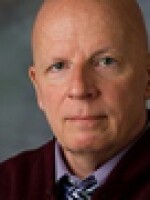The Democratic candidates for mayor of Albany debated for the first time last night ahead of September’s pivotal primary.
Candidates were given 90 seconds each to answer questions from WAMC and WNYT’s panelists, some of them submitted via social media. The audience at The Linda in Albany was not able to ask questions.
Albany's now-traditional "tin cup march" from city hall to the capitol was first up, and first-term Mayor Kathy Sheehan had first crack, touting her administration's successful bid that turned the annual handout into: "...an unprecedented $12.5 million in new aid for our city. That was new money."
Sheehan wants to ensure the spring cash influx becomes permanent. Common Council President Carolyn McLaughlin's vision entails auditing, investing and building upon current public-private partnerships. As mayor, she says she’d begin by scrutinizing all city tax exemptions. "If we find that they are not justified, we need to begin to collect those taxes."
McLaughlin wants to partner with SUNY Polytechnic to improve infrastructure.
Common Councilor Frank Commisso. Jr. brought up the Public Financial Management Group report for the New York State Financial Restructuring Board. "PFM conducted an audit of the city in June and it had provided findings. It said there was a $21 to $23 million deficit here in the city of Albany." Commisso promised if elected he'd "make a credible plan to the state" as part of a long-term multi-year budget.
Sheehan rebutted Commisso, stating PFM did not conduct an audit. "It was a management report. And it did not find a deficit. It merely identified, as we do every year, as every municipality does, the gap between revenues and potential increases in your operating expenses."
Those first minutes established the tone "debaters" would adhere to the rest of the hour. They answered the questions and stuck to their core campaign principles.

Some noted McLaughlin's Twitter feed was rife with counterpoint that didn't surface during the live event.
The candidates agreed that cutting the ranks of city police and fire departments to match the population ratio in accord with those of other cities across the country is not a good idea.
McLaughlin: "Albany is Albany, and this is what works for us."
Commisso: "I could not at this time justify an immediate cut to those services."
Sheehan: "We police differently in this city, because we have such a deep commitment to community engagement and community policing."
Sheehan added "Numbers are where they should be," and pointed out Albany's community policing method has been a federal model.
Red light cameras were also discussed. Commisso promises if elected he will terminate the program. McLaughlin says cameras are located in neighborhoods where people can least afford to pay the ticket. Sheehan noted the cameras were never about revenue; they are about safety.
The candidates fielded questions on economic development, taxes, doing business in Albany, and the land bank.
Moderator Benita Zahn asked a question about education: "The Albany School District, which recently hired a new superintendent, graduated only 58 percent of its students in 2016. What do you believe the role of the mayor is in improving student performance..."
Comisso: "We've had no consistent leadership over in the school district, so at one point very soon I would imagine there will be talk about mayoral control in Albany as it relates to schools."
Sheehan: "You can't boil the ocean, is what we say, because there are so many things that we need to be doing with our schools."
McLaughlin: "Until we get to that point where the mayor has control of the city school district, we have to make sure that we are a welcome member at the table when discussions are taking place."
Questions that followed included infrastructure woes such as deteriorating water and sewage lines. The discussion headed above ground to the preponderance of vacant, abandoned and buildings marked with red X's. And then there was the handling of the sale of the Palace Theater:
Commisso: "There was a handful of us on the Albany Common Council that were able to mitigate what I thought ultimately was a bad deal, but it turned out to be better., We didn't sell it for one dollar."
Sheehan: "Having the opportunity to negotiate a sale at a fair price. It was never going to be sold for a dollar. That's a fiction that keeps getting perpetrated over here."
McLaughlin: "People are concerned. How is this $65 million capital campaign going to affect me? How am I going to benefit from that?"
The last question of the evening came from social media. Moderator Ian Pickus is WAMC’s News Director: "Why should Albany be a Sanctuary City and how is it beneficial to American citizens?'
Sheehan: "We should not be forced by our federal government to undertake an unfunded mandate of enforcing immigration laws. We need to make sure that people in our city feel safe."
McLaughlin: "we cannot afford to be afraid to be a Sanctuary City because someone does not understand what that means and how it can be a positive for our community."
Commisso: "For me, my disagreement with the policies of a given president that we currently have, should not mean that I would grandstand and call ourselves a Sanctuary City when that is not the case."
The candidates debate once again on August 29th. WAMC will be represented on the panel at the Times Union-hosted event.







